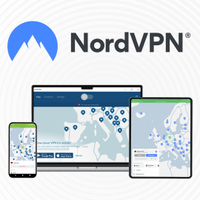What are VPN servers?
What exactly are VPN servers and which one should you use?

If you’ve ever used a VPN before, you’ll probably have spent at least a little time browsing the lists of available servers and locations, taking in all the different sorts of servers on offer.
If you're using one of the best VPN services, you might have an array of different options – Multihop servers, obfuscated servers, streaming servers, static IP servers, and more! You might be confused about not only where in the world you can connect to, but just what all these different terms mean!
Digging into the topic online can lead you to being even more confused as you find articles that go into far too much technical detail so in this article we’re going to break it down into the basics with a jargon-free explanation of what VPN servers are, how they work, and how to figure out exactly which one you might need.
What is a VPN server?
At the most basic level, a VPN server is a type of web server that's designed to deliver the VPN's service to its users. They're typically a combination of server hardware, specialized software, and VPN protocols all working together to allow users to connect to them and from there out to the wider internet.
If you'd like to get some more technical detail about just how this all works then you can check out our ugh when you connect to a VPN, and it's this server that switches your real-world IP address with the VPN server's IP address, concealing your real IP address and real location. Essentially the VPN server is acting as a middleman to protect you, adding extra security to your online connection and protecting both your actual location and online activities from any nosy or malicious snoopers.
Want a VPN with lots of server options?
Try NordVPN – from $3.39
NordVPN tops our charts as the best VPN around, and comes with a range of great server options. You'll get obfuscated (stealth) servers that hide the fact you're using a VPN, P2P servers for torrenting, double VPN servers for greater encryption, and even Tor over VPN servers for accessing the dark web.
▶ To find out more, check out our NordVPN review.
If you’d like to get some more technical detail about just how this all works then you can check out our How does a VPN work? article for more information.
How do VPN servers work?
When you visit a website without connecting to a VPN, your traffic is routed directly through your internet service provider (ISP) without any additional safeguards or encryption. This means that it’s easily accessible for any third parties who might want to have a look, such as the ISP itself, advertisers looking to learn as much as they can about you, nosy government agencies who want to spy on you and everyone else, or cybercriminals looking to hijack or compromise your connection.
A VPN makes browsing the web safer by routing your traffic through a VPN server, where it is secured with VPN encryption protocols and sent on to the site you're trying to access. This renders it unreadable to anyone who doesn't have the decryption key (which will usually only be your device and the website you’re trying to access).
If you need more information about VPNs, then you can check out our What is a VPN? page for a useful beginner's guide.
Not only that, but thanks to the use of something called Perfect Forward Secrecy, the decryption keys that are used are changed so frequently that even if someone did manage to access your connection, they would quickly find themselves locked back out when the keys are updated.
Using a VPN means that you get to enjoy the following VPN benefits:
- An improved and safer online experience: hackers can’t compromise your connection and advertisers have a harder time targeting you with adverts.
- Access to geo-restricted content: like streaming libraries in other countries as well as websites that are restricted to a specific location.
- Improved digital freedom: especially in areas where accessing certain news outlets comes with risks and political dissent can lead to legal problems.
- It prevents ISP throttling: disguising exactly what you’re doing online, so your ISP can’t restrict your bandwidth because you’re torrenting or streaming too much.
- It protects against DDoS attacks: After all, if a malicious actor doesn’t know your real IP address, then they can’t attack it. All they can do is try to attack the VPN, and all the best VPNs have defenses in place to protect against these kinds of attacks.
How to choose a VPN server
What kind of VPN server you might want to use, and where in the world it should be located, is very much down to what you’re trying to do in the moment.
If you’re trying to unblock streaming content then you will need to connect to a server in a country where the show or movie you want to watch is available. If you’re looking for a VPN to protect you while you’re gaming, torrenting, or doing anything else where speed is a priority then you should select a server in your home country if possible. This will reduce the distance your data has to travel, which cuts down on latency and leads to a lower ping (important for online games) and better download speeds.
If your main priority is privacy then you should connect to a server in a country with no mandatory data retention laws or a history of censorship to add an extra layer of protection.
To help with this, some VPNs have specialized servers for specific tasks. Here's a quick overview of the sorts of servers you might expect to see, though it will vary from VPN provider to provider.
- P2P servers: these are servers specifically for torrenting and sharing files quickly and securely. Some VPNs will only permit torrenting on these while others will let you use any server. Check out the best torrenting VPNs.
- Streaming servers: these make it easier to unblock specific streaming services such as Netflix, Disney+, and more. Take a look at the best streaming VPNs.
- Dedicated IPs: these servers provide a static IP address that only you can use. This makes it useful for tasks where security is even more important, like accessing online banking or even reducing the number of CAPTCHAs you see.
- Double VPN/multi-hop servers: a multi-hop server provides additional security and privacy by routing your connection between two or more servers before it continues out onto the internet.
- Obfuscated (stealth) servers: these servers disguise the fact that you’re using a VPN at all, allowing you to bypass VPN blocks and bans in restrictive countries.

After graduating from Stirling University with a qualification in Education, Shaun accidentally fell into the technology sector in the late 1990's and has stayed there ever since, working for companies such as PSINet, IBM and ProPrivacy in a variety of roles from Systems Administration to Technical Writer. Being around since the birth of the modern internet, he's seen the way that technology has expanded to become an integral part of everyday life, and how people's understanding and ability to retain any kind of privacy has lagged behind.
Shaun is a strong believer in the rights of the individual to have their personal data protected and their privacy respected – a belief made all the stronger in an age of surveillance from both governmental bodies and private companies all around the world.
He spends his spare time cooking, riding his motorbike and spending far too many hours in Star Trek Online hunting Klingons and Borg.
